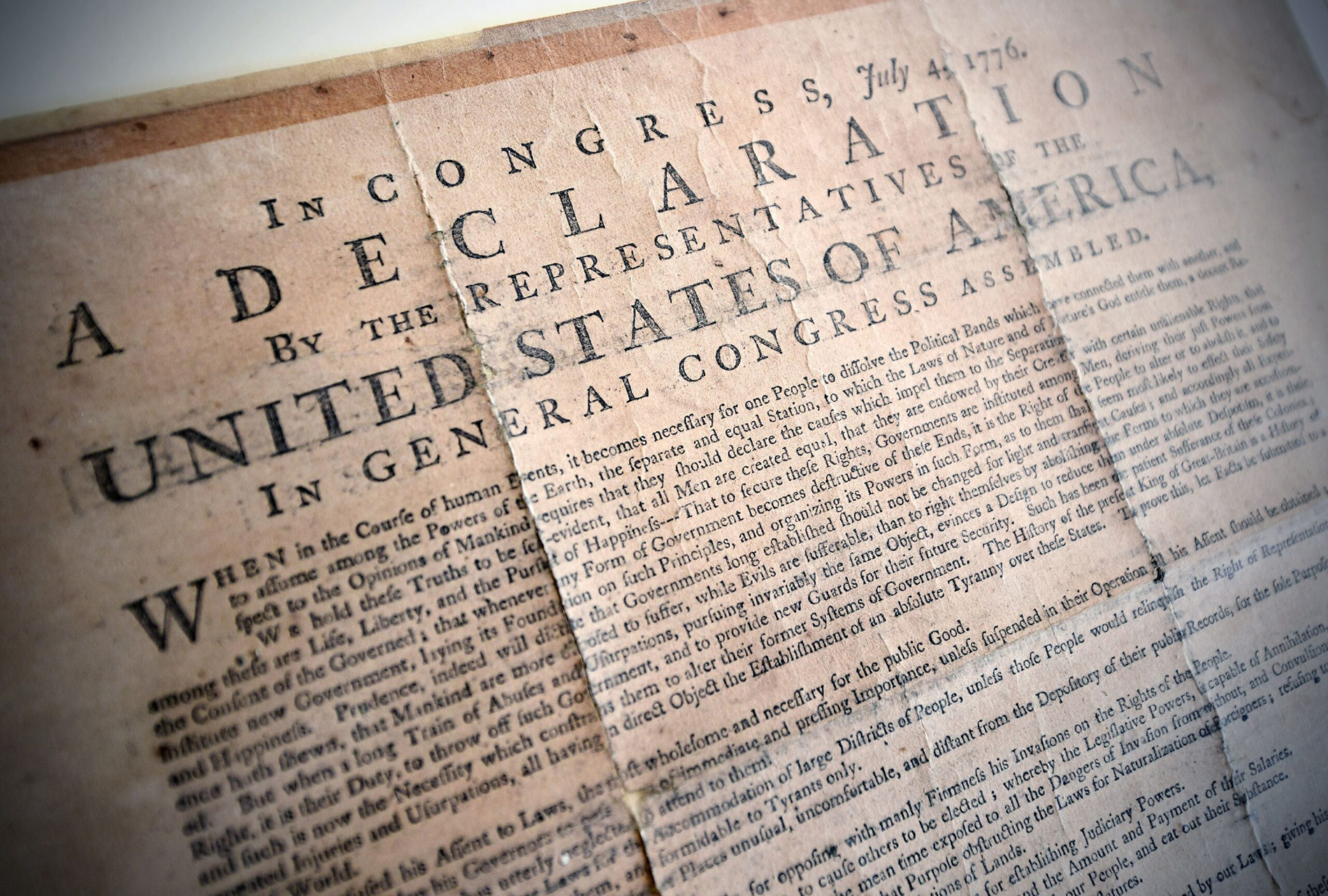
The Declaration of Independence and Missouri Statehood: Debates Over Slavery
On August 10, 1821, Missouri became the 24th state. This year, as we celebrate Independence Day and the bicentennial of Missouri statehood, we reflect on the political debates that shaped our past. The first draft of the Declaration of Independence included an anti-slavery clause that was cut out before the document was finalized, allowing for the continued enslavement of people in a document that declares all men to be created equal. Missouri statehood hinged on a compromise over slavery, which prohibited northern states from eradicating the expansion of slavery into Western territories while also introducing legislation that prohibited slavery north of the 36°30′ parallel. Join us for a panel discussion on the Declaration of Independence and Missouri statehood.
Moderator:
Geoff Ward is professor of African and African American Studies and a faculty affiliate in Sociology and American Culture Studies at Washington University in St. Louis. He is also the director of WashU & Slavery, an initiative of the Center for the Study of Race, Ethnicity, and Equity (CRE2) aligned with the global consortium of Universities Studying Slavery. Ward is a member of the organizing committee of the Reparative Justice Coalition of St. Louis, a community-based effort to acknowledge and address legacies of racial violence in greater St. Louis.
Panelists:
William S. “Steve” Belko is the Executive Director of the Missouri Humanities Council. From 2005 to January of 2015, Belko was associate professor of History, director of the graduate program in Early American Studies, and director of the graduate certificate program in Historic Preservation at the University of West Florida. He has published several monographs, the most recent of which is Contesting the Constitution: Congress Debates the Missouri Crisis, 1819-1821. Belko has also published numerous award-winning articles on various subjects of early 19th-century American history. Belko received his Ph.D. in history from Mississippi State University (MSU) and was a research historian for MSU’s Social Science Research Center.
Peter Kastor is professor of History and American Culture Studies in Arts & Sciences at Washington University in St. Louis. A historian of American politics, Kastor is the author or editor of seven books, as well as numerous articles and essays. A former Digital Innovation Fellow at the American Council of Learned Societies, he is currently at work on Creating a Federal Government, a project that combines a book about policymaking during the early republic with a major digital archive that reconstructs the early federal workforce. He is also a contributing author to A Fire Bell in the Past: The Missouri Crisis at 200, a forthcoming two-volume collection of essays on the Missouri Crisis co-edited by Jeffrey Pasley.
Jeffrey L. Pasley is Frederick W. Middlebush Chair of History and Associate Director of the Kinder Institute on Constitutional Democracy at the University of Missouri. He is the author of The Tyranny of Printers: Newspaper Politics in the Early American Republic, and The First Presidential Contest: The Election of 1796 and the Beginnings of American Democracy. Since 2018, he has been active on the scholarly side of the Missouri Bicentennial Alliance. He helped create “The Struggle for Statehood,” a traveling exhibit sponsored by the Missouri Humanities Council, and organized an international conference that forms the basis for two volumes of historical essays that will be published in 2021, A Fire Bell in the Past: The Missouri Crisis at 200.

